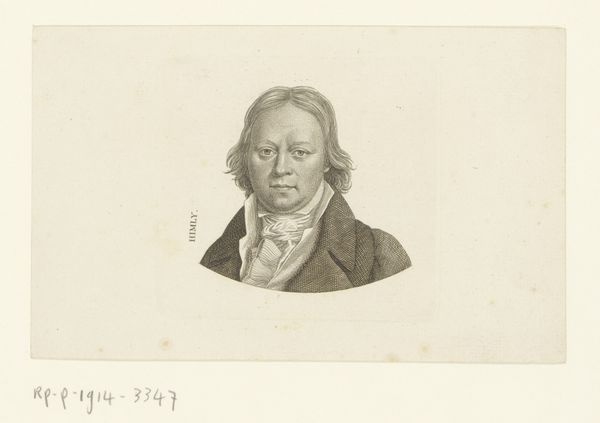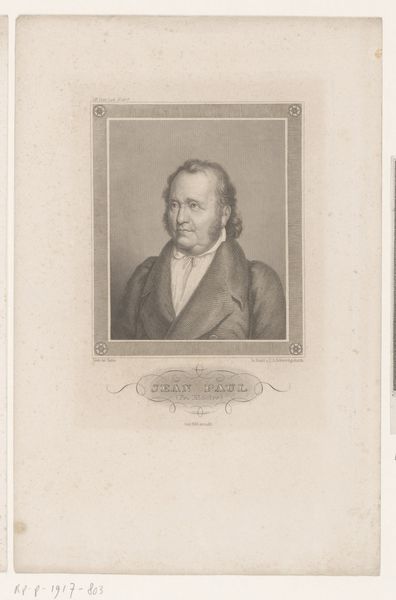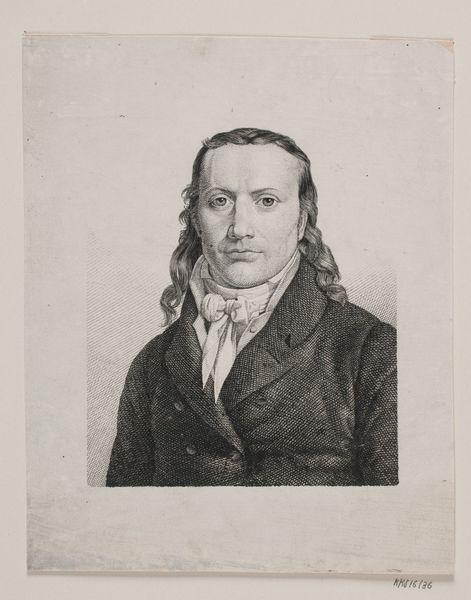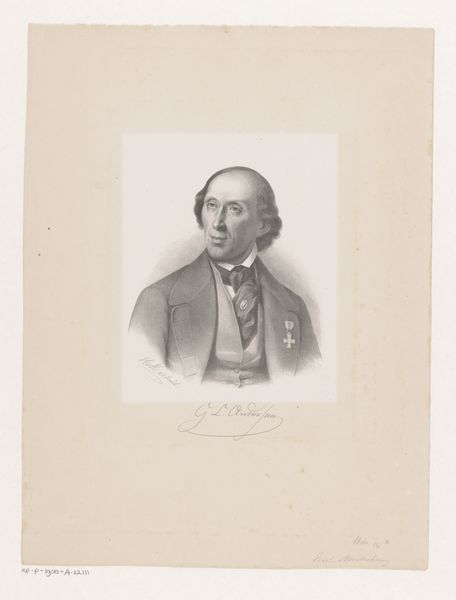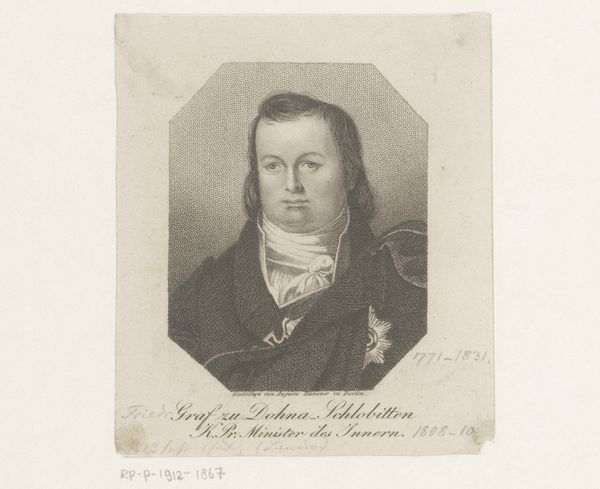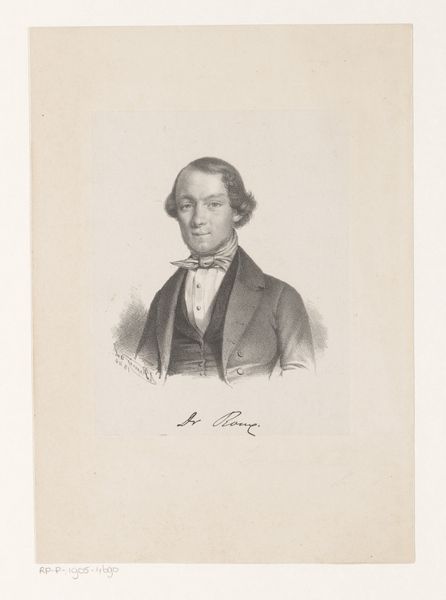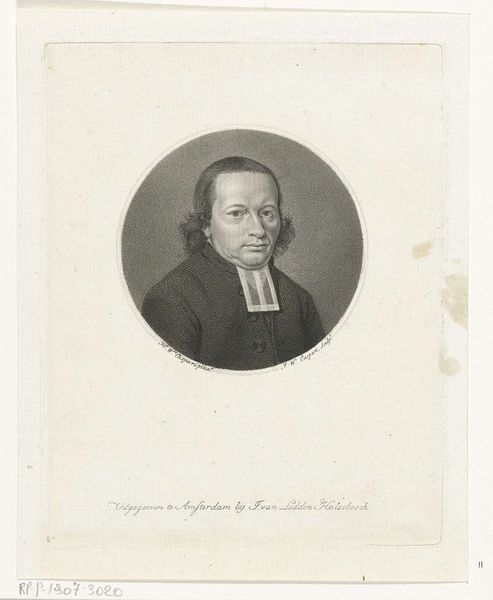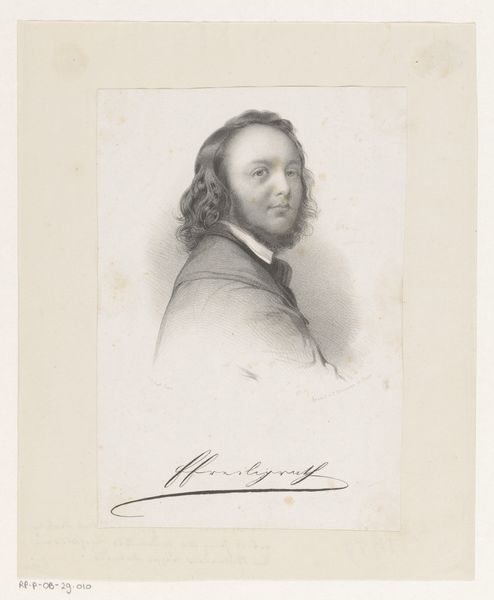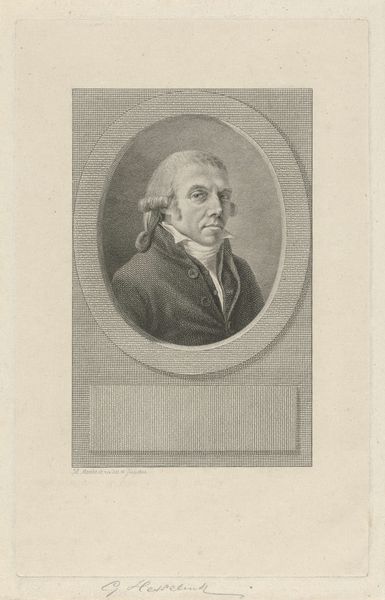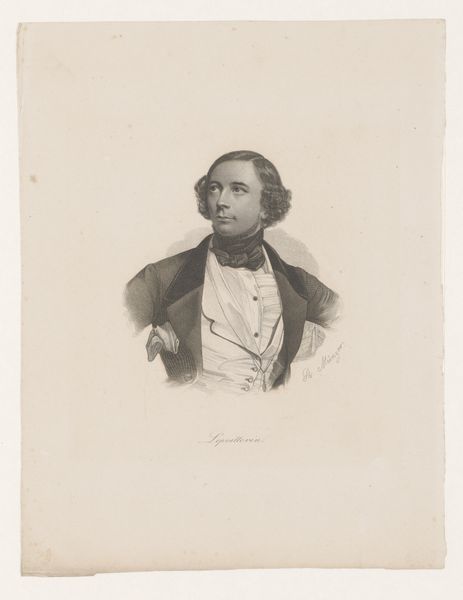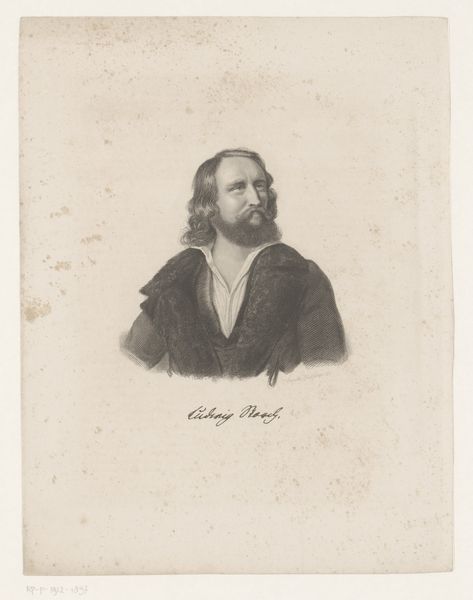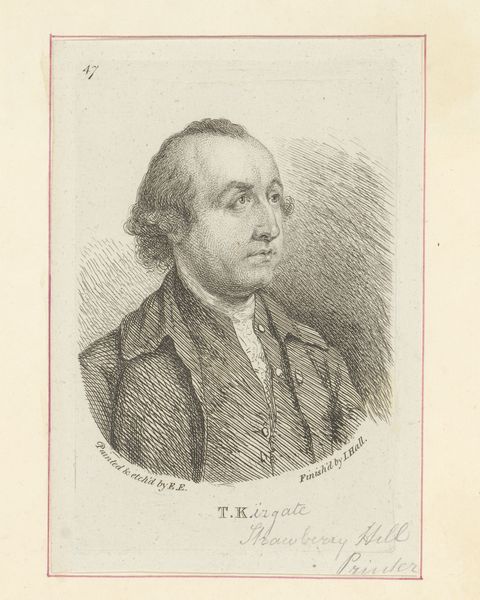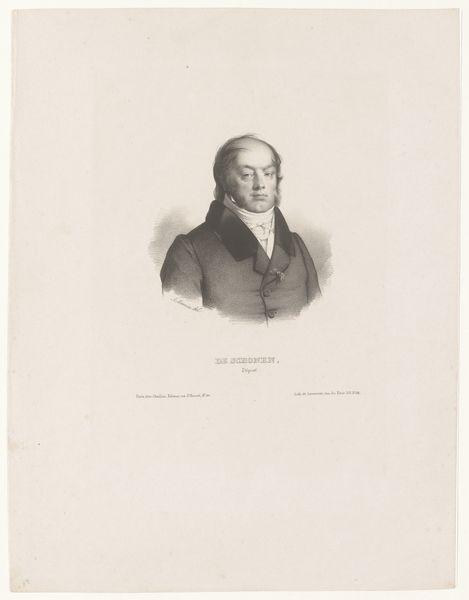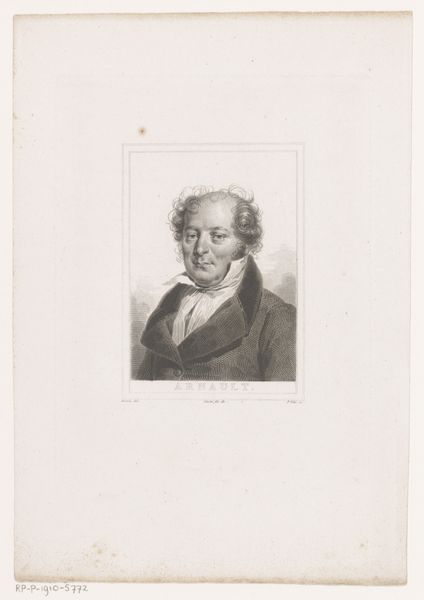
#
pencil drawn
#
light pencil work
#
photo restoration
#
pencil sketch
#
historical photography
#
portrait reference
#
old-timey
#
yellow element
#
portrait drawing
#
pencil work
Dimensions: height 90 mm, width 85 mm
Copyright: Rijks Museum: Open Domain
Editor: This is Heinrich Lödel's "Portret van Karl Gustav Himly," dating from 1808 to 1861. It's a delicate pencil drawing; the man’s gaze is really striking. What resonates with you when you look at this portrait? Curator: Immediately, the clarity of line strikes me. Look at how Lödel captures the textures of the hair and clothing with such economy. It speaks to a period deeply invested in physiognomy – the belief that one's inner character is reflected in their outer appearance. Note the directness of his gaze, perhaps intended to convey Himly's intelligence and integrity. Editor: Physiognomy, interesting! So the artist is trying to tell us something about Himly's character through his features? Curator: Precisely. The high forehead, the set of the jaw – these were read as indicators of intellectual and moral strength. This image is not just a likeness; it's a cultural artifact, embedding assumptions about identity and worth. Consider also the formal dress: how does clothing operate as a symbolic marker? Editor: I hadn't considered the clothing that way. It presents him as respectable and educated, someone of importance. Do you think later viewers might misinterpret those signals? Curator: Absolutely. Symbols shift, meanings erode and accrete over time. Our contemporary understanding is layered with different social and cultural contexts. The image’s impact is thus never static, but instead relational; both dependent upon context and evolving viewer. The portrait is now preserved in this drawing, for all of time. Editor: That's fascinating. I’m starting to think differently about portraits, recognizing they're much more than just a picture of someone's face. Curator: Indeed! Seeing how symbols change allows us to perceive our cultural memory, which shapes who we are today.
Comments
No comments
Be the first to comment and join the conversation on the ultimate creative platform.
